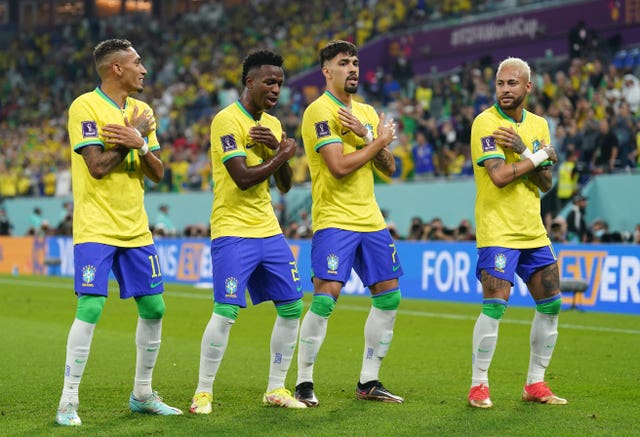Messi downs Australia and Mbappe burns Cash – the key numbers from the last 16
Portugal completed the quarter-final line-up with a 6-1 dismantling of Switzerland on Tuesday.

The series of shocks seen in the World Cup group stage came to an end in the last 16, with seven out of eight higher-ranked teams emerging victorious in the first knockout round.
Here, the PA news agency looks at the decisive metrics behind each result.
Netherlands 3 USA 1

Louis van Gaal’s side won the game on defensive merit, forcing 101 turnovers in the match – the joint-most managed by any team in a single game during this World Cup.
Argentina 2 Australia 1
Lionel Messi scored the opening goal and delivered his best performance of the tournament in Argentina’s win over Australia.
He had six shots in the game, which was more than the Socceroos managed between them (five), and received the ball on 28 occasions between the midfield and defensive lines (10 more than any other player).
France 3 Poland 1

Mbappe was the game’s leading player for shots (five), receptions between the midfield and defensive lines (38) and top speed (35.3 kilometres per hour).
Poland and Aston Villa right-back Matty Cash recorded more sprints (61) than any other player in an effort to shackle him, and admitted afterwards that Mbappe had “burned his legs”.
England 3 Senegal 0

Gareth Southgate’s side played more long balls than usual having struggled initially to pass out from the back. Jordan Pickford attempted 36 line-breaking passes – the most of anyone on the pitch and almost twice as many as he had tried in individual group matches.
Japan 1 Croatia 1 (Croatia won on penalties)
Croatia – winners of two penalty shoot-outs on their way to the 2018 final – edged past Japan on spot-kicks, with Dominik Livakovic becoming only the third goalkeeper to make three saves in a single World Cup shoot-out, following compatriot Danijel Subasic and Portugal’s Ricardo.
Japan took the lead in the first half through Daizen Maeda, but were on the back foot after Croatia’s Ivan Perisic equalised in the second period.
Despite being taken off after 64 minutes, the hard-working Maeda applied the most defensive pressures of any player (56). His absence showed – Japan had outshot Croatia eight to six at the time of his substitution, but could only muster four attempts to their opponents’ 10 thereafter.
Brazil 4 South Korea 1

Thiago Silva, who at the age of 38 is the fourth-oldest outfield player in Qatar, had a superb game in the centre of Brazil’s defence. He completed 83 out of 85 passes (the most on either team), including a first-time ball on the edge of the box to set up Richarlison’s wonder goal.
Morocco 0 Spain 0 (Morocco won on penalties)
Morocco were the only team in the round of 16 to defeat a higher-ranked opponent, with Achraf Hakimi’s chipped penalty sending his nation through at the expense of Spain.
Luis Enrique’s side mustered only six shots in 90 minutes and – while they improved in extra time with seven attempts – struggled to create chances throughout.
Morocco were happy to absorb Spanish pressure, with their total of 229 completed passes less than a quarter of Spain’s tally (967) and almost surpassed by Rodri alone (204).
Portugal 6 Switzerland 1
Portugal manager Fernando Santos’ bold call to bench Cristiano Ronaldo paid off spectacularly, with Ronaldo’s replacement Goncalo Ramos netting a hat-trick.
Santos’ side thrashed Switzerland despite having less possession than their opponents for the first time in the tournament (43 per cent compared with 48 per cent, 9 per cent in contest). They outshot the Swiss by 14 to 10 and were far more accurate, with nine efforts on target compared with one.





